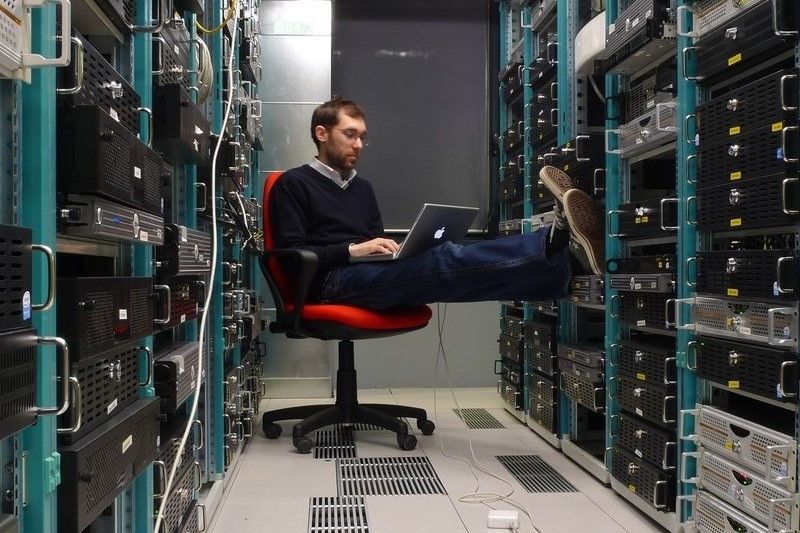If You Are Interested In Computer Networks, You May Have Heard The Words Active And Passive.
Computer networks include various equipment, such as routers and switches, that allow users to share resources. In this article, we are going to introduce the network operator. You will need experts with technical skills and network knowledge to install and configure network equipment. Before that, it is better to familiarize yourself with active and active services in computer networks, which we will discuss further.

What is a computer network, and who is a network engineer?
Before introducing the network operator, it is better to get familiar with the computer networks concept and know the general tasks a network engineer has.
A computer network is a set of devices connected and can transfer data, audio, and video traffic. Examples of these devices in a network are servers, modems, etc., which are identified by their IP addresses.
Computer networks help users to communicate with each other. They usually appear everywhere, including homes, companies, organizations, and government offices. Computer networks overcome geographical barriers and allow sharing of information from any location.
A network engineer is a computer network specialist responsible for designing, installing, implementing, and configuring network equipment such as routers and switches and security systems such as firewalls, monitoring, and troubleshooting computer networks.
Suppose we generally categorize network engineers into active experts and passive experts. In that case, it can be said that the passive expert or network prior installs the equipment needed for configuration and then hands over the work to the activator responsible for configuration and software work. Has, leaves. In the following, we will describe the active services in the network and the skills required by the operator.
What does active mean in a computer network? And what is a dynamic network service?
As you know, active means active. Being involved in computer networks means using equipment and software that connect to electricity and direct signals and make changes in network data.
In computer networks, services are divided into passive and active services. After the network plan is in place, the infrastructure must be set up, i.e., the network equipment must be installed to be ready for configuration.
After setting up the infrastructure and installing the required equipment, it’s time to configure them; after you have physically set up the network, you must be able to connect its various devices to share resources. For this, you must be able to configure devices such as switches, routers, access points, etc., and install the required software. These actions in computer networks are called passive network services. These actions are also known as active services in the network.
In fact, according to the definition we provided in the previous section, active services are performed to activate the network. After completing active services, devices can start sharing resources.
Who is the networked activist, and what are his duties?
Provide. According to the definition we provided of the concept of active in computer networks and operational services, it can be said that a network operator or an active network expert is an expert who has a high knowledge of the network and can configure different devices of different brands and provide the necessary security. Also, it should be able to troubleshoot the grid if required. Of course, note that the actuary can have different tasks according to his knowledge and expertise and the company’s needs.
Now that you know the concept of active and active network services and network operators, we can describe the operator’s duties in more detail. Here are some of the activities that an activist can do in the network:
- Configuration of Cisco, Mikrotik, etc. network equipment, such as switches, routers, modems, access points, etc.
- Installation and commissioning of network software
- Configuring software and hardware firewalls
- Installation of client and server operating systems and their settings
- Installation and setup of network services such as DHCP server, DNS, and…
- Implementation of VIP
- Virtualization solutions
- Setting up the network domain and related services
- Providing backup and data recovery solutions
- Internet management, monitoring, bandwidth control
How to become a network activist?
The first step to entering the computer network world is taking the Network+ course. +Network prepares you to enter computer networks regardless of the company and specific platform. (You can also design and read its book). After completing this course, you will acquire the knowledge and skills necessary to develop a career in IT infrastructure.
This course provides the information needed to troubleshoot, configure, and manage wired and wireless networks in enterprises worldwide, understanding emerging technologies, including cloud technologies and virtualization.
After +Network, you should choose your specialized field and acquire the necessary knowledge and skills. Several companies are producing network equipment, with Cisco being the pioneer in this field. Depending on your interest and needs, you can learn to configure and troubleshoot the equipment of each of these companies and increase your skills.